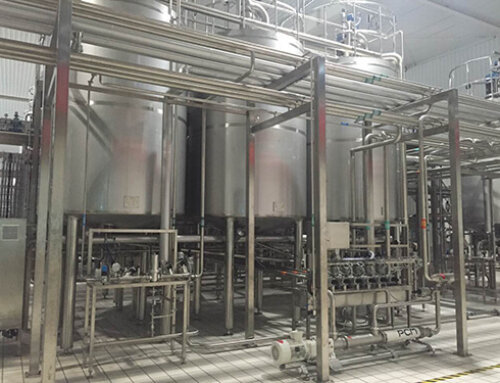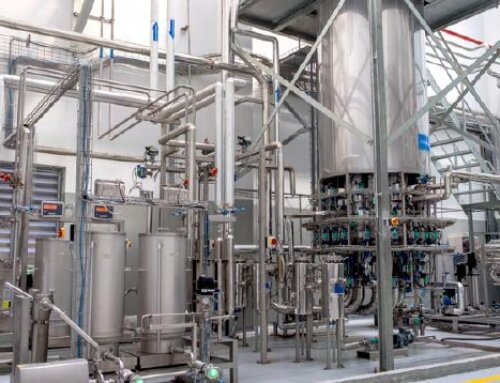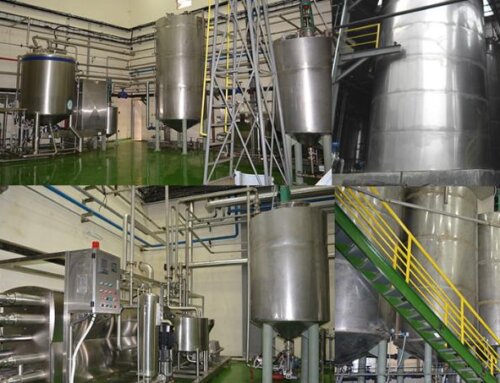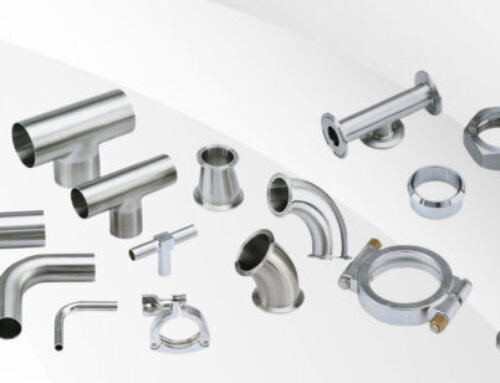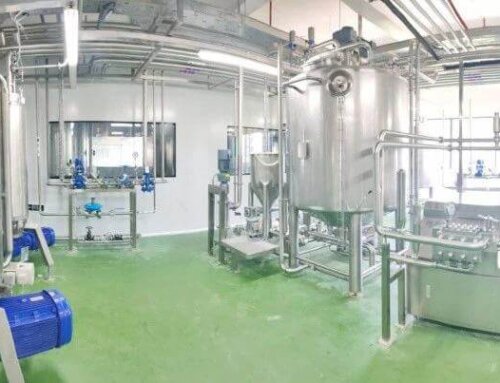Fruit and Vegetable Juice Introduction
Fresh fruits or vegetables are selected, graded, cleaned, squeezed or leached to extract juice, and the commercial juice is made after filtration, sterilization, and bottling processes. Fruit and vegetable juice is used as a base material, and the juice prepared by adding sugar, acid, spices, water and other ingredients is called a fruit and vegetable juice beverage.
The fruit and vegetable juice squeezed from fresh fruits and vegetables, although the pulp tissue (dietary fiber, pectin, protein) is lost, but the water-soluble nutrients are almost all retained in the fruit and vegetable juice. Add sucrose, vitamins, minerals, sour materials, spices, etc. to make pure fruit and vegetable juice products. The soluble solid content in NFC fruit and vegetable juice is generally 10%-15% of fruit and vegetable juice. Therefore, drinking pure fruit and vegetable juice can not only replenish water, but also obtain a variety of nutrients.
Pure juice, like fresh fruit, is rich in vitamins. For example, 100% NFC orange juice contains high levels of vitamin C and carotene. Drinking a cup of 250ml of high-quality 100% orange juice can meet the nutritional needs of adults for vitamin C for a day. Carotene not only converted into vitamin A in the human body, also has a strong antioxidant effect.
Pure fruit juice is also rich in vitamin B2, folic acid and other vitamins, and also rich in minerals such as potassium and magnesium, which is very beneficial for preventing high blood pressure. Potassium, sodium, magnesium, calcium and other elements can produce alkaline substances in the process of human metabolism, and people usually eat more meat, fish, eggs, etc., which contain more nitrogen, phosphorus, and sulfur, which can produce acidity in the process of human metabolism. Therefore, drinking fruit juice helps to neutralize excessive acidic substances and maintain the body’s acid-base balance.

Fruit and Vegetable Juice Classification
—Artificially prepared fruit juice: This product does not contain any fruit juice but it has fruit juice taste prepared with sugar, citric acid, food coloring, food flavor and water.
—Natural fruit juice: a beverage made from fresh fruits and vegetables through various processes. Natural fruit juice can be divided into concentrated fruit juice and NFC fruit juice. Among them, NFC fruit juice can be divided into clarified fruit juice and turbid fruit juice. The clarified juice will go through a special process of clarification and filtration during the processing. The juice is clarified and transparent, without suspended matter, and has high stability. Because the pulp particles, colloids, etc. are removed, its flavor, color and nutrition are all deteriorated due to partial loss. Common clear juice include apple juice, grape juice, cherry juice, etc.; when turbid juice is processed, it needs to go through the special process of degassing and homogenization, so that the pulp becomes fine colloids suspended in the juice, and the juice appears uniform and turbid. The fine particles of the pulp are retained, so the color, nutrition and flavor are better preserved. Citrus, apricots, and peaches can be used to make cloudy juices.
—Juice powder: also known as fruit juice type solid beverage, it is processed by dehydration of raw fruit juice or concentrated fruit juice. The water content of the final product is 1%-3%. Generally, it needs to be mixed with water to drink.
Fruit and Vegetable Juice Beverage Trends
- Plant-based protein drinks replace animal protein drinks. As a new substitute for animal protein, plant-based protein beverages have a compound annual growth rate of 11.3%. The market size is expected to reach 40 billion U.S. dollars in 2025. At present, plant-based protein beverages account for about 7% of the entire soft drink market. The main vegetable protein drinks include soy protein milk, coconut milk, oat milk, almond milk and other grain products.
- Fruit and vegetable juice drink sugar substitute and sugar-free. As humans pay more attention to health, sugar-free beverages have gradually become a trend. The sugar substitute beverages refer to beverage additives that do not add natural sweeteners such as sucrose, fructose syrup, etc., but add artificial sweeteners such as acesulfame K. Abbastian etc. Compared with natural sweeteners, which have high-calorie properties, artificial sweeteners have the taste of sugar, but have zero calories, so they are healthier.
- Environmental protection of beverage package. With the increasing awareness of environmental protection and attention to climate change, beverage packaging has begun to quietly undergo a revolution. At present, well-known beverage companies in Europe and the United States such as Coca-Cola, Pepsi, Nestle, Danone, etc. have successively launched recyclable rPET bottles as new beverage package.
- The popularity of immune health drinks. Immunization beverages began to be accepted by the public as popular beverages. The immune beverages refer to beverages made by adding turmeric, herbs, health-care medicinal ingredients and other ingredients to the beverage. This type of beverage has the effect of improving human immunity.
